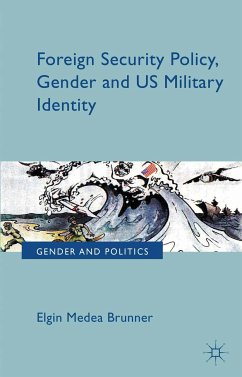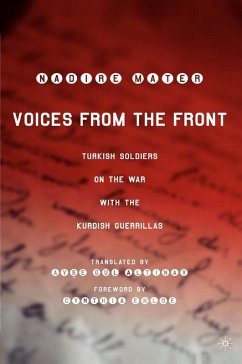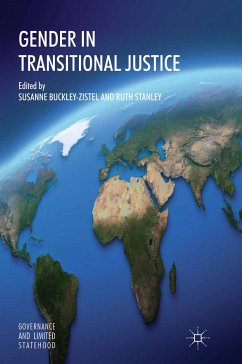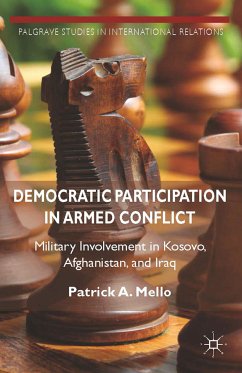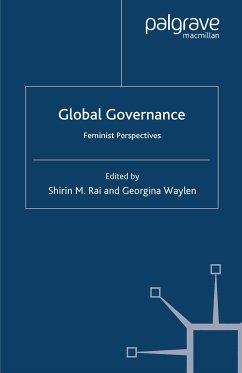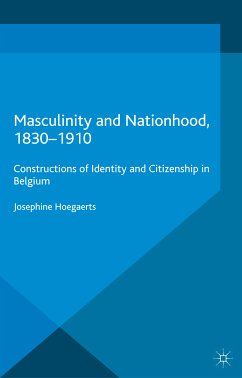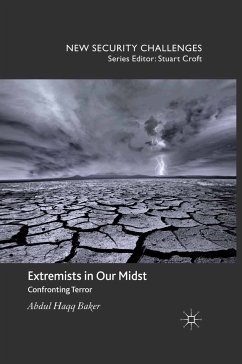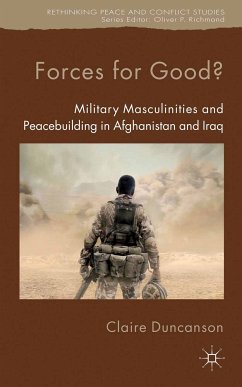
Forces for Good? (eBook, PDF)
Military Masculinities and Peacebuilding in Afghanistan and Iraq
Versandkostenfrei!
Sofort per Download lieferbar
40,95 €
inkl. MwSt.
Weitere Ausgaben:

PAYBACK Punkte
20 °P sammeln!
This book utilises the growing phenomenon of British soldier narratives from Iraq and Afghanistan to explore how British soldiers make sense of their role on these complex, multi-dimensional operations. It aims to intervene in the debates within critical feminist scholarship over whether soldiers can ever be agents of peace.
Dieser Download kann aus rechtlichen Gründen nur mit Rechnungsadresse in A, B, BG, CY, CZ, D, DK, EW, E, FIN, F, GR, HR, H, IRL, I, LT, L, LR, M, NL, PL, P, R, S, SLO, SK ausgeliefert werden.




